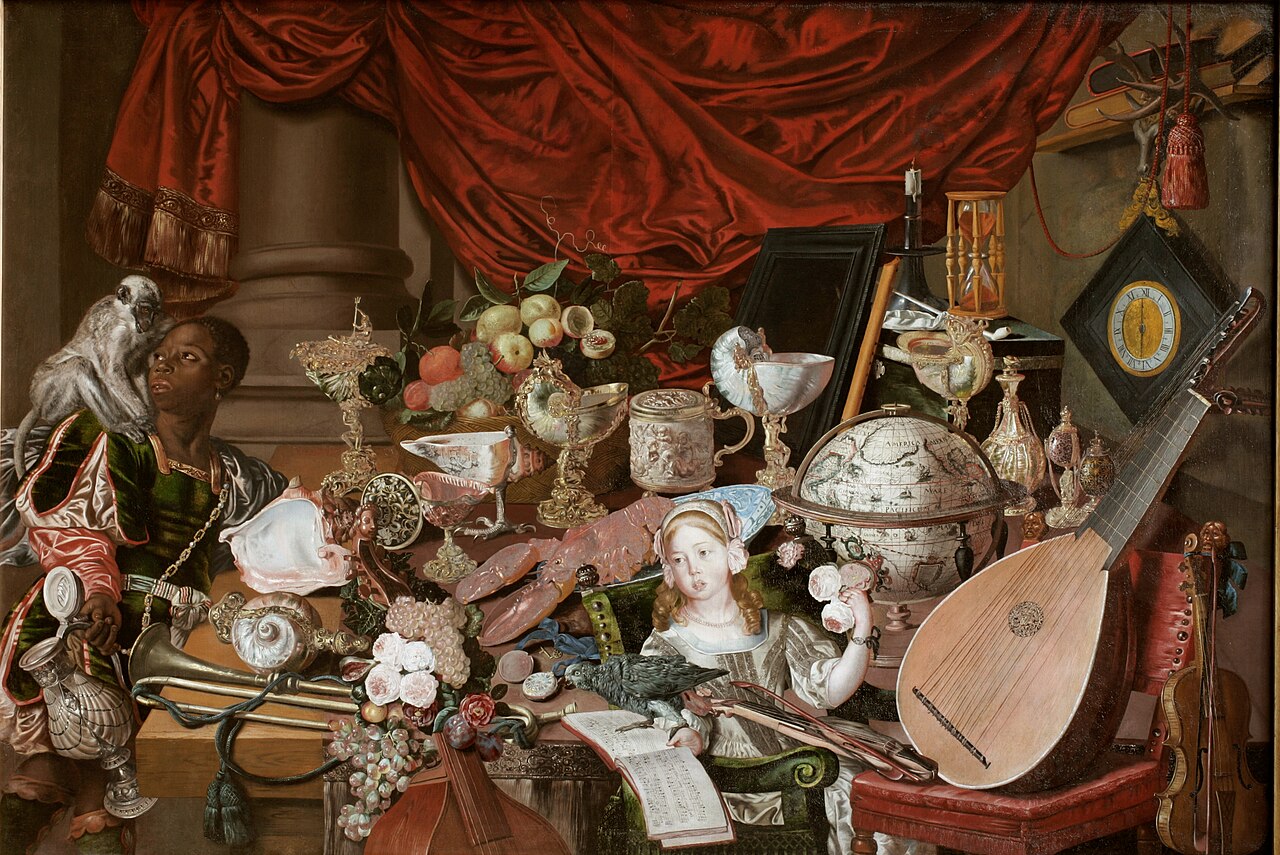
Here we go. The eleventh edition of McGill Reads has produced a list that is wide in reach and ambitious in scope. While time-consuming to compile, McGill Reads is a joy for the curators because it inspires an impressive pan-McGill response from students, staff, faculty, and administrators.
Each edition, we renew old acquaintances with our longtime contributors, and we make new friends among our first-timers. With each passing year, our contributors have become increasingly prolific with their commentary, adding extra insight into both the books in question and the commentators themselves. We thank you all for time and thoughtful responses. As they say, it makes for a lovely read.
Wishing everyone nothing but the good stuff for 2024!
******
Jennifer Timmons speaks for all of us who sometimes stall in mid-read despite our best intentions.
“This holiday I will try to finish at least one book as I am a serial book starter,” says Timmons, Communications Officer, Faculty of Dental Medicine and Oral Health Sciences. “It is so easy to buy or borrow a book and read a few chapters, and with work and life so difficult to finish.
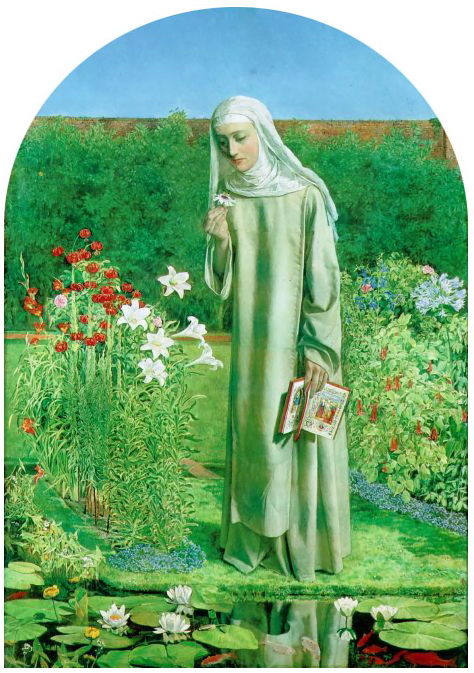
“The first one is an early Christmas present from me to me, Doppelganger: A Trip into the Mirror World, by Naomi Klein. What starts off as curiosity when people continuously mistake her for Naomi Wolf drives her to start investigating the other Naomi though her public persona,” writes Timmons. “Over the last 30 years Naomi Wolf has gone from being a liberal feminist to someone who posts COVID conspiracy theories on social media and is an ardent anti-vaxxer.
“Naomi Klein’s investigation into the other Naomi is a deeper reflection on the spread of false news and conspiracy theories, the blurring of what it true and what is a lie especially during the pandemic, and what will it take for society to turn away from this dangerous route of misinformation. I am fascinated on how people go down the internet rabbit hole and believe things that 15 or 20 years ago they would have scoffed at,” says Timmons.
“I am trying to finish Fanny Britt’s Faire les sucres. It is a story of a couple who are successful on a professional level, but a surfing accident in Martha’s Vineyard makes the husband question his life with his second wife and his privilege and the humanity of how we linked to each other in spite of our differences. Fanny Britt draws out the characters and their search for deeper fulfilment as a panacea for what they feel is missing in their lives, and it being set around Montreal and the West Island resonated with me. She is a multitalented novelist, playwright, essayist, children’s author and translator.
“I also recommend her book of essays Les retranchées : échecs et ravissement de la famille. It picks up from a first collection in 2013 on the balance of family and career,” she writes. “In Les retranchées she explores topics including raising boys to embrace their feelings and reject macho stereotypes, challenging traditional gender roles, and the pressures women face from social media marketing and influencers. It resonated deeply with me, and captures the mix of emotions many women and mothers feel these days. My 2023 challenge was to read more in French, and both books are a great choice if you want to explore local authors and push yourself to read in French too!”
******
“This year I’m feeling called to delve into the topic of forgiveness,” writes Andrea Di Stefano, Manager Registration, Programs, and Degree Evaluation, Enrolment Services. “The first book I pick up on that theme will be the 1,333-pager I started last holiday season, A Course in Miracles, by Helen Schucman and William Thetford. The book/course states that forgiveness is the ultimate goal of the curriculum, and is also the source of the often-quoted phrase ‘Nothing real can be threatened. Nothing unreal exists. Herein lies the peace of God.’
“Next up is The Disappearance of the Universe, by Gary Renard, which was lent to me by a dear friend,” says Di Stefano.
“I’m also looking forward to Sophie’s World, by Jostein Gaarder, which was mentioned on last year’s McGill Reads list and seems right up my alley.”
******
Samir Shaheen-Hussain, Pediatric Emergency Physician Associate Professor (Department of Pediatrics) and Associate Member (School of Population and Global Health), offers both recommendations of books for people to read, and works he is planning to tackle himself.
“While some equity-diversity-inclusion (EDI) initiatives may be well-intentioned, EDI frameworks are often inadequate primarily because they rarely address the root causes of injustices and because their ultimate goal is not to produce structural changes necessary to make our society more caring and just. In Elite Capture: How the Powerful Took Over Identity Politics (And Everything Else), Olúfẹ́mi O. Táíwò, Associate Professor of Philosophy at Georgetown University, masterfully articulates the misuse of identity politics by elites in different settings, and instead reminds us that social justice work involves ‘not just to change hearts and minds, but to change the common ground,'” writes Shaheen-Hussain.
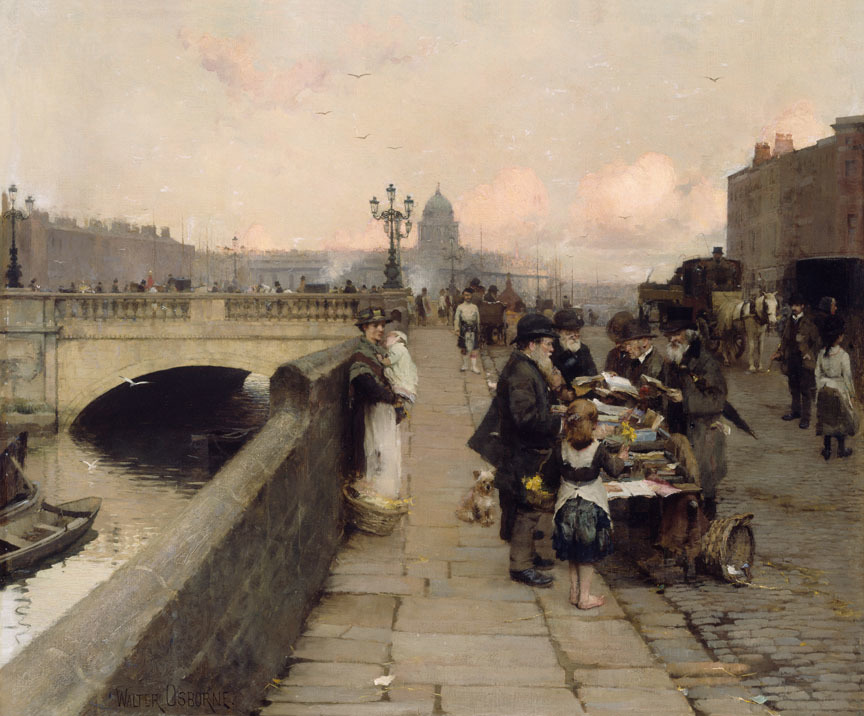
Shaheen-Hussain points out that the book is also available in French: L’élite cannibale.
“In contrast to the pervasive ‘deferential approach’ (based on simplistic understandings of individual identity) that Táíwò qualifies as ‘ultimately anti-political,’ his call to pursue a ‘constructive political culture’ that compels us to swim upstream to ‘be accountable and responsive to people who aren’t yet in the room’ is particularly relevant for those of us in academic spaces that are still inaccessible and alienating for too many people.”
“Sipi Flamand (whose traditional name is Miaskom Sipi) is an Atikamekw Nehirowisiw who is the elected chief of Manawan, and was an important player in the development of Joyce’s Principle to commemorate the life of Joyce Echaquan,” says Shaheen-Hussain. “Many of us argue that the shifts in medical culture that will come from the adoption and implementation of Joyce’s Principle in health care and health education (including at McGill and its affiliated hospitals) will not only benefit Indigenous people and communities, but will benefit everyone accessing our healthcare system who wants to be treated with dignity and respect. Similarly, in the very accessible Nikanik e itapian / Un avenir autochtone « décolonisé, Sipi Flamand provides a scathing critique of settler governments and political structures, while simultaneously outlining how decolonization and supporting Indigenous self-determination are in everyone’s best interests.”
“With viral winter season upon us and COVID19 cases on the rise because of yet another variant, our attempts at returning to ‘normal’ seem fleeting at best almost four years since the beginning of the pandemic. In Crisis and Contagion: Conversations on Capitalism and Covid-19, Ian McKay, the L.R. Wilson Chair in Canadian History at McMaster University, brings together conversations with scholars, journalists, and activists who argue that we returning to the pre-pandemic “normal’ should not be the goal,” says Shaheen-Hussain. “Instead, they call for an end to the neoliberal capitalist violence that wages war against life on earth. Despite the glaring lack of Indigenous voices and perspectives that would have been so relevant for a compilation of interviews focusing on the impacts of capitalism, several of the interviews nonetheless effectively remind us that the grief and rage felt by so many around the world during the COVID19 pandemic can be marshalled for transformative action through social movements rooted in global solidarity.”
Shaheen-Hussain’s reading list for the holidays and 2024, include:
- Becoming Kin: An Indigenous Call to Unforgetting the Past and Reimagining Our Future, by Patty Krawec (foreword by Nick Estes)
- Body and Soul: The Black Panther Party and the Fight against Medical Discrimination, by Alondra Nelson
- Everything for Everyone: An Oral History of the New York Commune, 2052–2072, by M. E. O’Brien and Eman Abdelhadi
******
If McGill Reads ever opens a Hall of Fame, Kim Stephenson will certainly be in the inaugural class. Stephenson, Trade Buyer Bookstore Services, McGill University Bookstore, Student Housing and Hospitality Services, one of the original 17 contributors to our very first McGill Reads list in 2013, and has the distinction of being the only person to have participated in every holiday McGill Reads since.
“This break I will be reading one book, Barbara Streisand’s My Name is Barbra, all 90,000 pages, which is the equivalent of 10 years of holiday reading,” says Stephenson. “Excuse me, I’m told the book that is causing my apartment to lean at a frightening angle is a mere 970 pages, so we’re good. I most look forward to her early New York years singing in small clubs, and her directing of Yentl.”
******
“I’m currently reading The Disordered Cosmos, by Prof. Chandra Prescod-Weinstein,” writes Stéphanie Laroche-Pierre, Senior Administrative Coordinator, Global Health Programs, School of Population and Global Health. “Next on my list are Le Plongeur, by Stéphane Larue; Fighting for a Hand to Hold, by Samir Shaheen-Hussain; and Que notre joie demeure, by Kevin Lambert.
******
A hearty McGill Reads welcome goes out to Tobias Gurl, an MSc candidate in the Department of Family Medicine and a first-time McGill Reads contributor. Gurl gets top marks for such a thoughtful, and personalized submission.
“For my last-minute submissions to the reading list, I’d like to nominate Complaint!, by Sara Ahmed; Pit Bull: The Battle Over an American Icon, by Bronwen Dickey; and The Raven Tower, by Ann Leckie. (Honorable mention: the website Notion for helping me organize my reading list, which comes in handy when someone requests a recommendation),” writes Gurl.
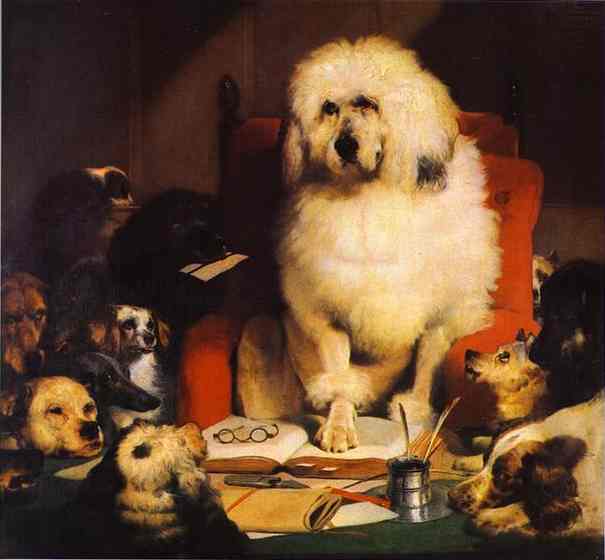
“One of the consequences of being a multiply-marginalized person is that institutional processes aren’t written with my needs in mind. I find myself falling through a labyrinth of cracks, flopping from one crisis to the next like a beached fish,” says Gurl. “As painful as the immediate material consequences of discrimination can be, I’ve found I can weather them as long as I don’t turn my frustration into shame.
“Complaint! isn’t an easy or organized text, with clearly delineated case studies and how-to guides for worming your way through hostile systems, but its stream-of-consciousness narration reads like how it feels to be surrounded and discombobulated, pushed and shoved by people who have the power to ignore their own rules, and it’s that authenticity that brought me comfort. The way it’s written is the message – that life is unfair, and confusing, and isolating; but I am not imagining my experiences, and I am not alone,” says Gurl.
“My dog, Winston, is a rough collie – a ‘Lassie dog’. She has a pointy nose and a self-satisfied strut, and dog lovers coo over how pretty she is,” writes Gurl. “Even when she breaks the canine code of manners, other dogs owners wave off my apologies and excuse her because of her looks and the history of her breed. It’s embarrassing every time, but a little cringe is nothing compared to what bully breeds and their owners experience.
“Pit Bull is a lighter read, in a sense, in that it scans like the work of pop-nonfiction that it is instead of an academic text like Complaint! but its subject material is equally serious: how racism and classism are weaponized against dogs, and how dogs are weaponized against poor and racialized people. It charts the full history of the breed(s), from their origins at the start of the dog breeding craze to contemporary moral panics and breed bans, paying close attention to how the perception of dogs changes based on who’s walking them – and how those perceptions can have lethal consequences,” says Gurl.
“As a palate cleanser, The Raven Tower answers the question, ‘What if Hamlet, but narrated by a magic rock?'”
******
“After an intense fall semester, and with a long flight coming up soon, I am all about comfort reads this holiday season,” says McGill Reads regular, Jan Bottomer, Music and Arts Career Advisor, Career Planning Service (CaPS). “Fantasy, romance, historical fiction … I’m looking for compelling characters, immersive worlds and stories and definitely some happy endings! In the running for space in my carry on are:
- Three Holidays and a Wedding, by Canadian authors Uzma Jalaluddin & Marissa Stapely. “A ‘multi-faith holiday rom-com’ …yes please!”
- The Vanished Days, by Susanna Kearsley. “The third in her ‘Scottish series’ of well-researched dual timeline historical novels”
- A Lady for a Duke, by Alexis Hall. “Described as ‘a groundbreaking and excellent queer historical romance’
- Stardust, by Neil Gaiman. “Whimsy! Magic! Adventure!”
******
Thomas Daudlin, Senate Governance Officer, Secretariat, makes a compelling case why people should read The Golden Spruce: A True Story of Myth, Madness and Greed, by John Vaillant.
“Published in 2005, Vaillant’s tale still touches on highly relevant topics in our culture today: Indigenous and colonial history, exploitative industrial practices, environmental conservatism, and debatably justified activism,” writes Daudlin, a first-time contributor to our humble list.
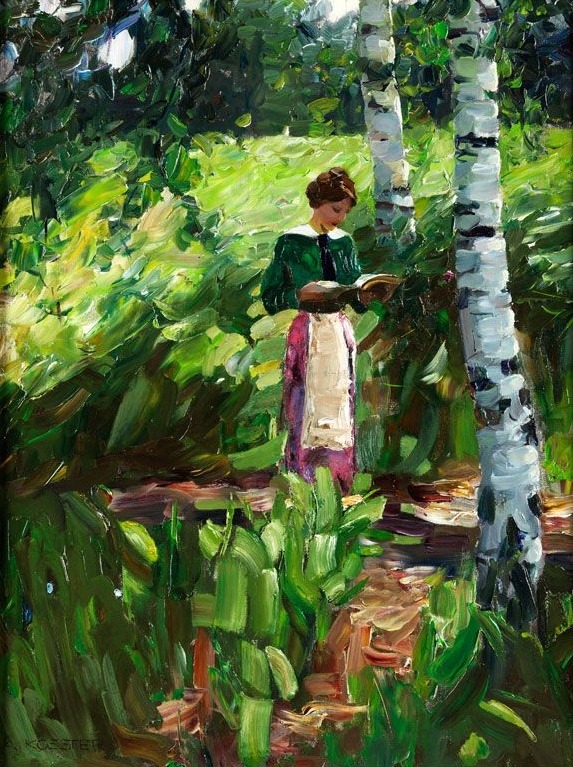
“The symbolic figurehead of these issues is an awe-striking natural wonder – a sitka spruce dazzlingly clad in luminous golden needles, topping 165 feet tall in all its radiance, sacred to the Indigenous Haida, and known to them as Kiidk’yaas. The gleaming tree was nestled gently along the banks of the Yakoun River in British Columbia’s famed, yet incredibly remote, archipelago of Haida Gwaii. It grew in peace until January 20, 1997, when under the cover of a deep darkness only broken by a smattering of stars and the tree’s glimmer, a series of strategic cuts put into the base of its trunk left it standing but terribly weakened, fighting for life. Its branches dipped in defeat, and two days later it fell.”
“The perpetrator was one Grant Hadwin, an accomplished outdoorsman and ex-employee of the timber industry, who claimed the act was one of protest against contemporary logging practices and those who push its agendas forward,” continues Daudlin. “He vanished while en route to his day in court, crossing a stretch of vicious ocean via kayak, no less – but some evidence emerged in following years which suggested he may have indeed survived the ordeal, but offered no clue to his whereabouts.”
“Readers of The Golden Spruce will find themselves working through complex ideological reflections – for its violent end, Kiidk’yaas brought attention to the world’s dwindling reserves of old growth, and it shocked many into considering anew humankind’s place as stewards of this earth. Was it worth it? What can we do going forward? and, most intriguingly, where is Grant Hadwin now?”
“If ‘Forestry True Crime’ was a genre – this book would exemplify it.”
******
“I am back again with my list of books,” declares Crystal Noronha, Manager Student Affairs, Faculty of Dental Medicine and Oral Health Sciences.
“I am drawn to memoirs and one that piqued my interest : The Unwinding of The Miracle, by Julie Yip-Williams.” she writes.
Noronha will also read Still Alice, by Lisa Genova. “I already started this book. I recommend reading it as it helps one understand what families with an Alzheimer’s diagnosis go through.
“And on the lighter side, James Herriot’s All Creatures Great and Small. A book published many years ago that can entertain and walk you through an English vet’s life,” she says.
******
Bruna Salhany, Accreditation & Quality Improvement Administrator, starts her submission with a Toni Morrison quote, and follows it with an interesting perspective on reading – and the various emotions that come along with finding, reading, and finishing a good book.
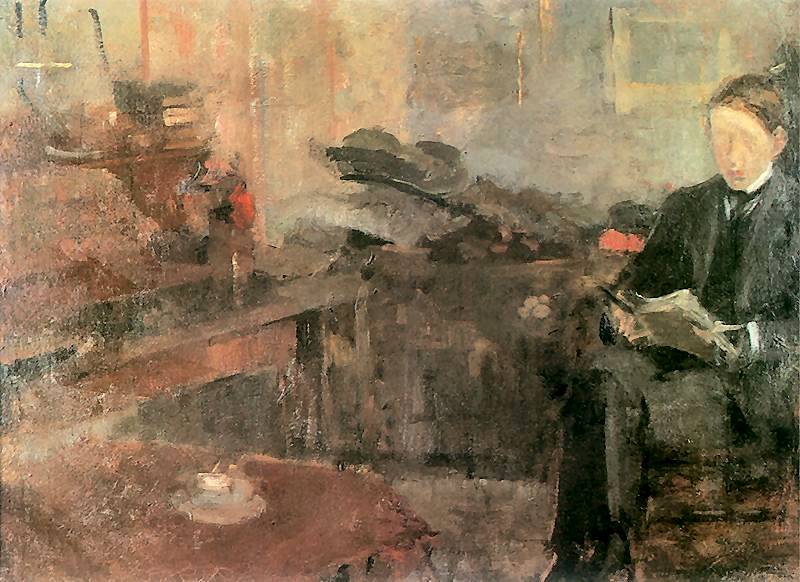
“Books are a form of political action. Books are knowledge. Books are reflection. Books change your mind,” ― Toni Morrison
“The thing about a ‘book’ is that it’s as much a Pandora’s Box as it is a place of respite, escape, and expansion,” says Salhany. “When ‘that’ book falls across your path, who can fight that feeling of being pulled in? Or of slight bewilderment from time seeming to have paused? Or of the rush at having discovered the next world into which you will transport yourself?
“Without knowing it, many bibliophiles have shared in the phenomenon of Tsundoku: acquiring new reading materials, letting them pile up, but not reading them (at least not right away). There’s joy in this act, which at least for me is equally matched to the moments of finding book-treasures – especially by happenstance at the annual McGill Book Fair,” she writes. “We’ve shared in the sadness of coming to a book’s ending, and living with Fertigbuchkummer (literally finished-book sorrow) for a bit or longer than that, and then the rejuvenation when cracking open a new tome (not it’s spine though!)”
“My holiday break this year will be dedicated to the rereading of a couple of favourites, and the reading of ones taken out of my reading pile:
- The seminal classic Pride and Prejudice, by Jane Austen
- A Map of Home, by Randa Jarrar (winner of the Hopwood Award, and an Arab American Book Award)
- The Sisters Brothers, by Patrick DeWitt (winner of the Governor General’s Literary Award amongst others)
- The Inheritance of Orquídea Divina, by Zoraida Córdova, “which based on the first chapter alone is a read sumptuously imbued with magical realism.”
“Wishing all McGillians and the loved ones a safe, restful, and joy-filled holiday season,” says Salhany. “And especially a wonderful trip into the written worlds you’ll be visiting.”
******
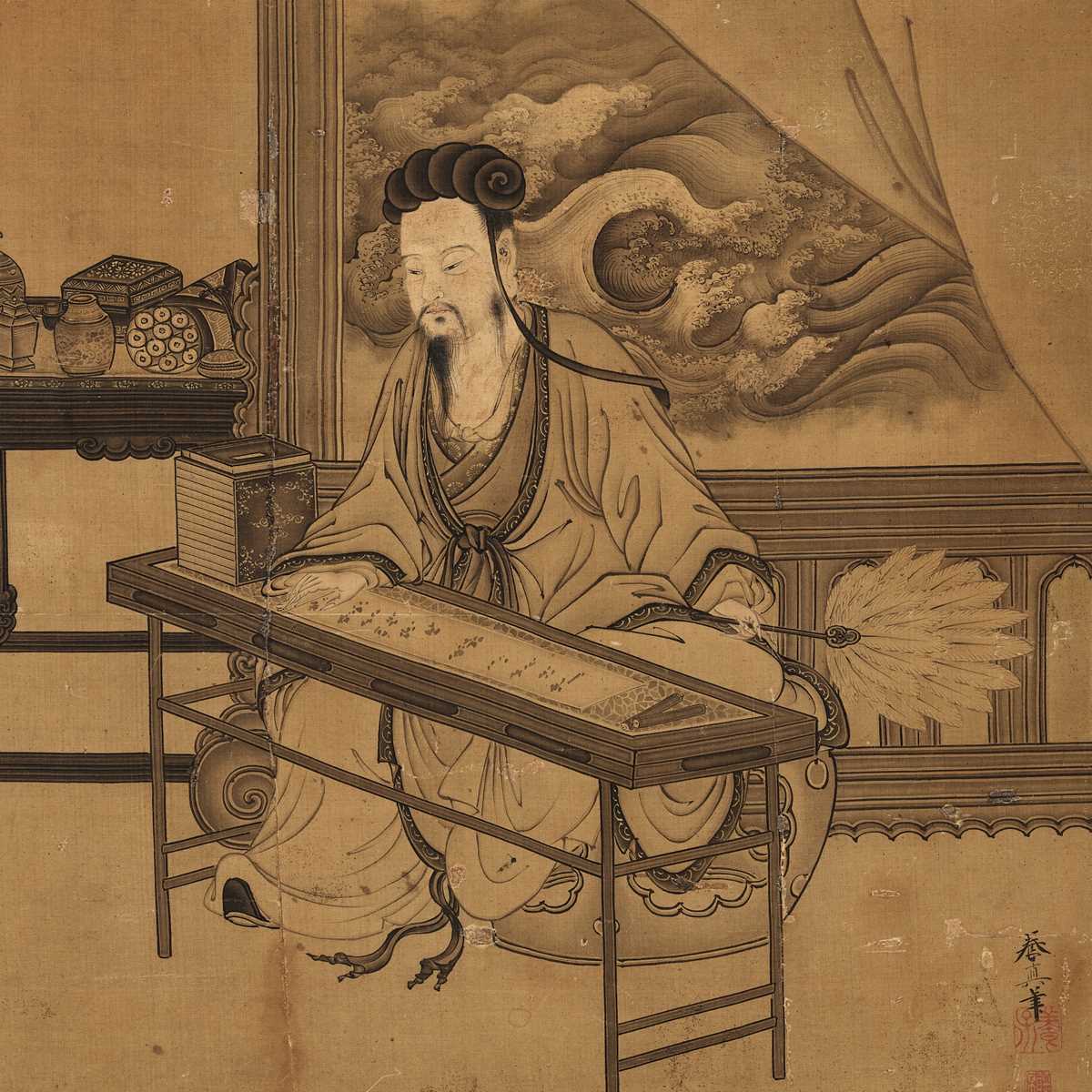
Sara Marcil-Johnson, Student Affairs Coordinator, M.Sc.(A.) in Couple and Family Therapy program, recommends The Authenticity Project, by Clare Pooley.
“A very enjoyable and light read. The book starts in Monica’s café in London, England and weaves the lives of beautiful strangers together,” writes Marcil-Johnson. “Community, connection, and helping one another are themes explored in this fun and entertaining book.”
******
McGill Library book displays run throughout the year and are a great way for students, faculty, and staff to take a break and explore collections, both print and electronic. 2023 book displays included “Our story in our words” National Indigenous Peoples Day Display, “Access / Ability,” “Black History Month” displays, and much more.
In December, a physical display located on the main floor of the Redpath Library Building features “Library Staff Picks.” Each volume is beautifully wrapped and exhibited and one book will be unwrapped a day. Visit daily until December 22 and watch the selections begin to reveal themselves – it’s the perfect inspiration for holiday reading lists. And check out the curated reading lists from 2022-2023 for added inspiration. Curious to know what the most borrowed books from the Library are? Check out the Library’s Year in Review blog post.
******
Sean Goldfarb received his Master of Science at Fall Convocation in November. He plans on applying to the Master of Arts in Teaching and Learning for the summer. Sean and his mother Janice, who has an MSc. Physiology from McGill, are regular contributors to our holiday list. “Thanks as always for doing McGill Reads, it’s a splendid tradition,” says Sean.
This past year, Sean read the following books:
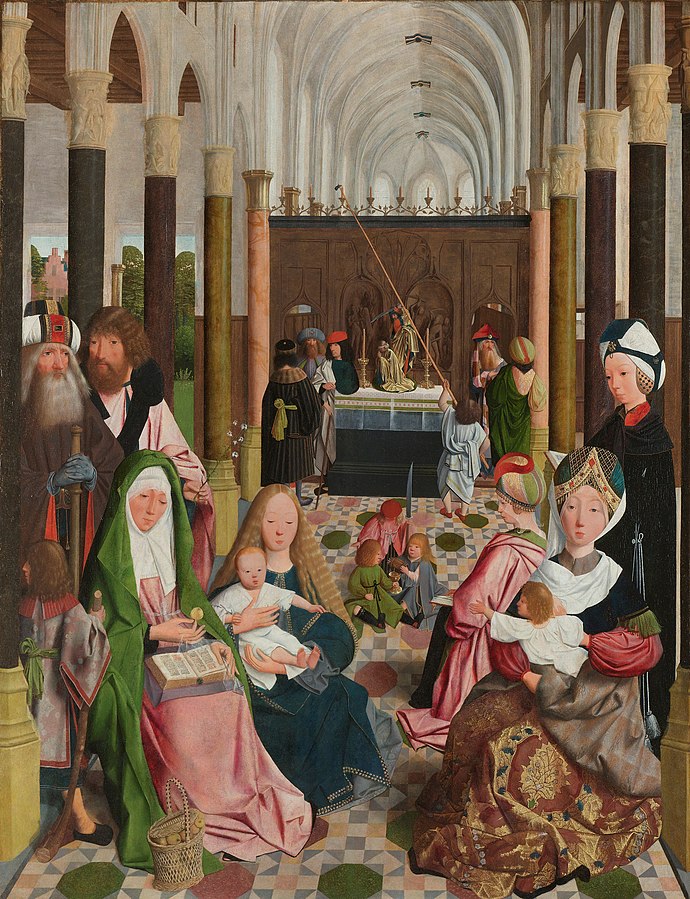
The Antagonists, by Ernst K. Gann. “Historical fiction set during the siege of Masada, that event during which, according to legend, around a thousand Judean rebels chose suicide over enslavement/massacre by their Roman conquerors,” writes Sean. “At its core, it’s a comparative character study of the two real title antagonists: Eleazar ben Yair, the leader of the rebels; and Flavius Silva, leader of the fearsome Roman tenth legion. It’s a captivating study of leadership, its breakdown and the emotional states running high as, after 3 years of stalemate, the Roman assault ramp now inches closer to the wall of Masada.”
Emancipation, by Michael Goldfarb (no relation). “A fascinating study of Jewish history in Europe from the eve of the French Revolution to the Dreyfus affair, discussing at length the Jews’ issues in integrating into modern European society (and Europe’s hesitancy to accept them) following their slow and often difficult release from the Ghettos, and how the Jews thus became immigrants in the countries in which they were born,” says Sean. “The author’s thesis is to connect this story as a template to that of the Muslims in modern Europe struggling with integration following their own immigration.”
Beloved, by Toni Morrison. “A tragic story about the struggle of a family (particularly the mother) recently freed from bondage to move on from the trauma they experienced shortly after fleeing the plantation and the terrible and pitiful ghost that haunts them.”
“For some light reading, I’m currently getting through Rise and Fall of the Third Reich, by William L. Shirer. It’s a very comprehensive history of the rise of Hitler and the Nazi Party, Hitler’s conniving long-term strategies and his constitutional ascendancy to the chancellery, the deliberate steps he took towards war against the advice of his generals, and ultimately the world war and the end of Nazi Germany,” says Sean. “Written by someone who was a correspondent in Europe for a large part of the events and having direct access to government documents immediately following the war (the first time in history documents like this were made available so soon), this is a fascinating and morbid read. The cover and title have certainly raised some eyebrows on the bus!”
Sean’s to-read list includes:
- The Book of Five Rings, by Musashi, Miyamoto “A text written around 1645 about kenjutsu and martial arts and which has had influence on business strategy and as a guide for life philosophy.”
- The Art of War, by Sun Tzu. “Written in the 5th Century BCE. As above, this is a classic guide to warfare which has been notably applied to business, politics, espionage, and life in general.
- Two Solitudes (1945), by Hugh McLennan. “A classic of Canadian literature, a mythical telling of the struggle between the ‘two-solitudes’ of the English and French Canadian communities and the political, economic and personal tensions that this rift creates.
- Decline and Fall of the Roman Empire (1776-1789), by Edward Gibbon. “This multivolume work covers Roman history from roughly 98-1590 CE and is a sweeping history of this once great nation.”
- “Two ancient biographies translated by Scriptorium Press, founded by two McGill Alumni (Anthony Pavoni and Evangelos Nikitopoulos): the first is The Life of Saint Nilus the Younger (11th Century CE) a little known text describing the title monk’s life, detailing incredible events such as demon fighting and political intrigue; the second is The Conversion of Saint Cyprian (4th Century CE), about a North African sorcerer who, after attempting to seduce a virtuous woman with the aid of an army of demons, eventually became Christian.”
******
This year, Sean’s mother, Janice Goldfarb read the following books:
- The Covenant, by James A. Michener. “Historical fiction about the early history of South Africa and the peoples who lived and migrated there.”
- The Rabbi,Noah Gordon. “Noah Gordon’s first novel, about a man growing up in America as he slowly comes to terms with who he is and who he has become.”
Currently, Janice is reading People of Darkness, The Dark Wind, and The Ghostway, part of the Jim Chee Navajo Tribal Police Series, by Tony Hillerman. Three interesting mysteries that take place in and among the Navajo people. The author grew up in the area, although not Navajo himself but reveals to the reader a different perspective. A mystery with a twist of culture.
Some books that interest her for the future are The Midwife of Venice, by Roberta Rich, and The Weight of Ink, by Rachel Kadish. “Both are historical fiction set time long ago about women trying to survive in their world amid harsh circumstances.”
******
Welcome to McGill Reads, Sofie Athanasia Tsatas!
“I’m an avid reader and I love to share book recs with others,” writes Tsatas, Senior Reference Assistant & Cataloguing Editor, Marvin Duchow Music Library. “I find it a fun and engaging way to connect. I also have a massive to-be-read pile at home, without enough bookshelves, oops, haha.”
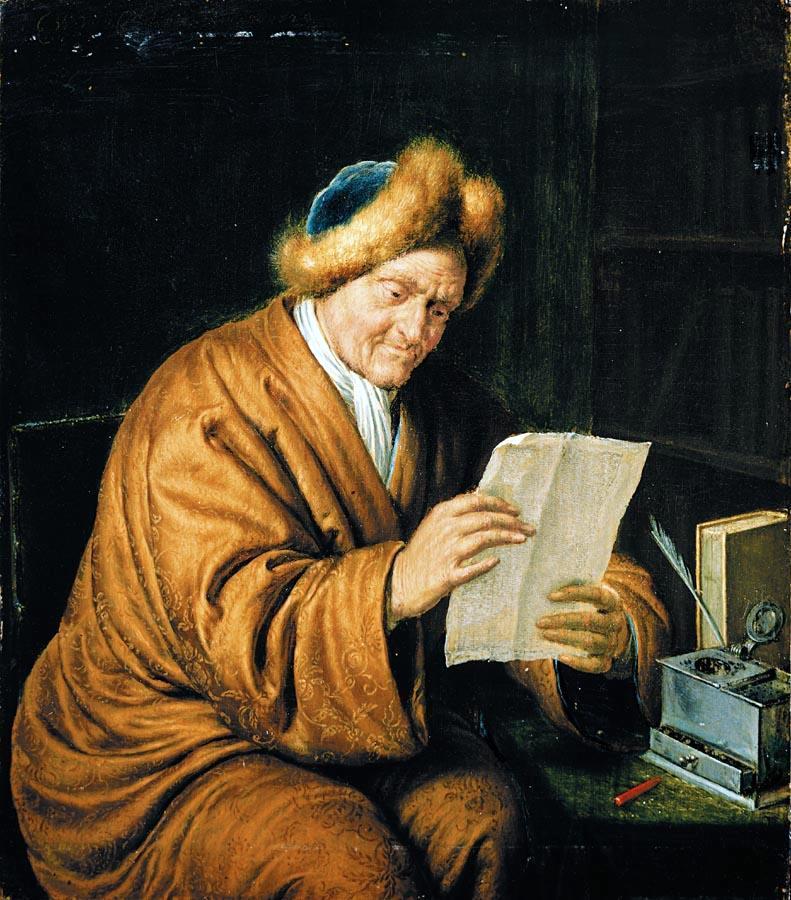
Tsatas recommends the following books:
Family Meal, by Bryan Washington. “Washington’s prose is both raw and visceral. The themes of grief, love, reconnection, and friendship are conveyed in a very nuanced and real way in this book. I cried a few times while reading!” says Tsatas.
Mudflowers, by Aley Waterman. “Mudflowers is a story about complex relationships, individualism, loss, grief, and love,” writes Tsatas. “It’s very much character-driven with a lot of meandering thoughts and streams of consciousness. If you like Sally Rooney and/or Raven Leilani, then I really recommend this book!”
Fella Enchanted, by S.O. Callahan. “This is a sweet and cozy read! It takes place in a small village and there are lots of descriptions of the scenery, from the forest to the river to the stables. Very much cottagecore vibes!”
Jade is a Twisted Green, by Tanya Turton. “This is a book that’s been on my to-read list of awhile now. I hope to read it during the holidays,” says Tsatas.
“I’m currently reading an arc (advanced reader copy) of a book set to release in January, titled Breeze Spells and Bridegrooms, which the authors, S.O. Callahan and Sarah Wallace have provided me with (eternally grateful!). It’s filled with magic and intrigue.”
******
“I just finished reading with delight The Poison King, by historian Adrienne Mayor about the life of King Mithradates, the famed enemy of the Roman Republic,” writes Violaine Melançon, Associate Professor of Violin, Schulich School of Music. “A while back, I also really enjoyed her The Amazons. Happy holidays!”
******
“As the first of my family to enter middle school, studying abroad was never my dream. However, as the inaugural McCall MacBain Scholar from China, I am now blessed to be a member of our McGill community,” writes Kook (Fuqin) Hu. “Along this transformative journey, reading has played a pivotal role in broadening my horizons and fostering personal development.”
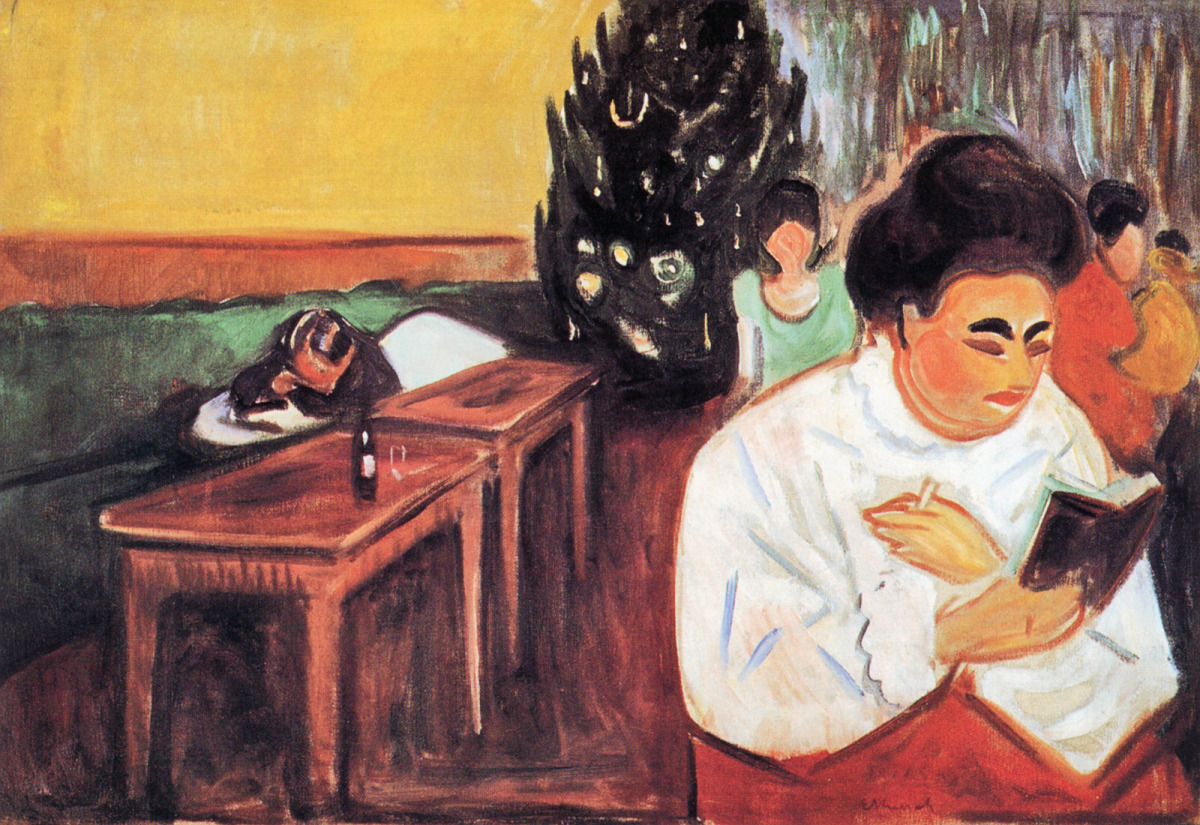
Hu recommends the following books, many of which resonate strongly with his own experiences:
The Alchemist, by Paulo Coelho. “Considered my personal Bible, I carry this book with me everywhere and read it each night before bedtime,” writes Hu. “The magical journey of the shepherd boy has provided endless inspiration, motivating me to find and live my ‘Personal Legend.'”
Why Greatness Cannot Be Planned, by Kenneth Stanley, Joel Lehman. “This book by OpenAI scientists resonates with my belief that life’s mission is often unpredictable,” says Hu. “Drawing parallels between the shepherd boy’s quest for ‘treasure’ and my unexpected journey to Canada, it explores the difficulty of planning every step of our path.”
Educated, by Tara Westover. “As a First-Gen student, Tara’s memoir about her journey from an anti-literacy family in the mountains of the USA to Oxford deeply echoes with my own experiences.”
Poor Charlie’s Almanack, by Peter Kaufman and The Almanack of Naval Ravikant, by Eric Jorgenson. “These books, among others, are essential reads for building ‘true wealth’ and long-term happiness,” says Hu.
“Being a biography lover, I believe reading constructs our surroundings, which largely and implicitly influence who we become,” writes Hu. “I recommend the inspiring biographies A Woman Makes a Plan, by Maye Musk; Principles, by Ray Dalio; and Walter Isaacson’s works on Albert Einstein, Benjamin Franklin, Steve Jobs, Leonardo Da Vinci, and Elon Musk.”
******
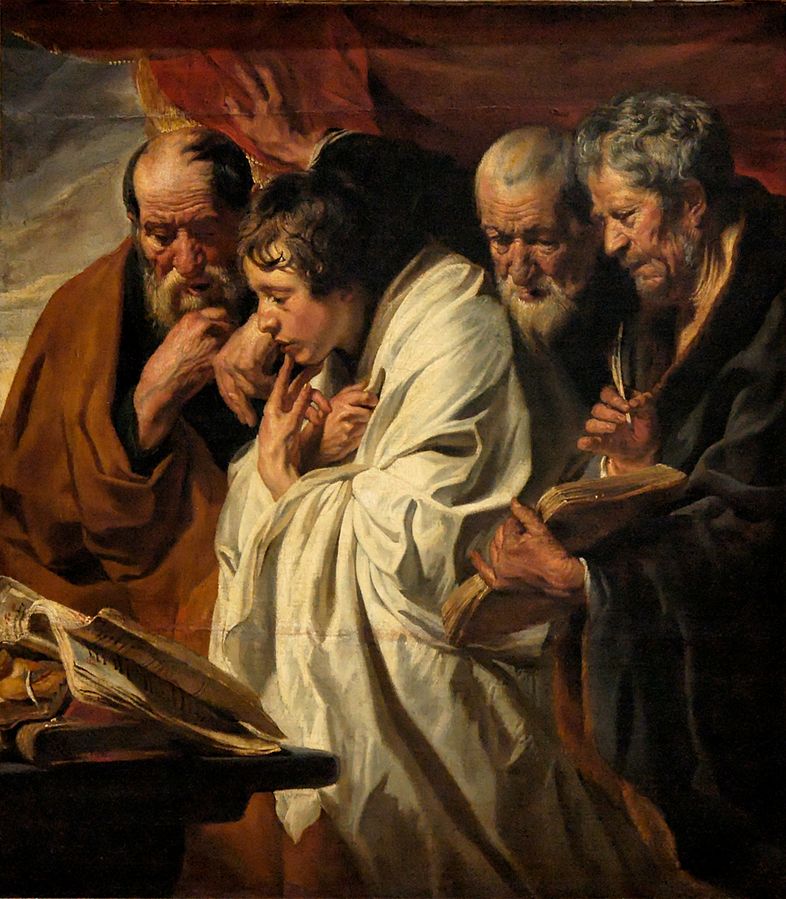
It’s not McGill Reads season until we hear from Janet Boeckh (DipEd’69, MEd’77) and Lawrence Mysak (Prof. Emeritus, Atmospheric and Oceanic Sciences).
“We’ve both enjoyed Abraham Verghese’s The Covenant of Water, a beautifully written and engaging and humane saga based partly on his own Indian grandmother’s life,” they write. “We also loved Bonnie Garmus’ Lessons in Chemistry, a modern ‘fairy story’ about a female chemist’s challenges in a male world of science.
“Janet also recommends Hope is a Woman’s Name, by Amal Elsana Alh’Jooj, a memoir of a Bedouin woman growing up in the Negev area of Israel, After the births of several daughters, her father named her ‘hope’ so that the next births would be male (and they were!). Her story is a perfect example of how important support and education are for women,” they write.
“Moon of the Crusted Snow, and Moon of the Turning Leaves, both by Waugbeshig Rice have been on best-seller lists. And for those who are interested in the big picture and cosmology, Lawrence recommends The Origin of Time, by Thomas Hertog, which deals with the foundations of cosmology, describing the author’s collaboration with Stephen Hawking over the last twenty years of his life. The concepts are challenging to understand but worth exploring.”
******
Valeria Lima, Manager Technical Design, Design Services, Facilities Management and Ancillary Services, has divided her list into two parts.
Lima recommends the following books:
- My Sweet Orange Tree, by José Mauro de Vasconcelos. “The novel was first published in 1968 and it’s a classic of Brazilian literature.”
- The Storyteller: Tales of Life and Music, by Dave Grohl. “Stories from the former drummer of Nirvana and current Foo Fighters’ lead singer, guitarist, and songwriter. Witty, humble, and well written.”
- The Glass Castle, by Jeannette Walls. A memoir about childhood, adventures, homelessness, alcoholism, love, values… and how education can change your life even if all the odds seem to be against you. Very genuine, cruel, disconcerting, and fascinating, all at the same time.
Then there are the books, Lima is hoping to tackle over the holidays:
- La ridícula idea de no volver a verte, by Rosa Montero.
- Le sablier: otage au Sahara pendant 450 jours, by Edith Blais
- Interpreter of Maladies, by Jhumpa Lahiri
******
Always thought-provoking, Daniel McCabe poses an interesting question regarding the connection between art and artists in his submission to McGill Reads.
“One of my favourite TV shows is Buffy the Vampire Slayer – and its creator Joss Whedon is now widely regarded as a toxic bullying jerk,” says McCabe, longtime editor of the venerable McGill News. “One of my favourite films was Annie Hall, but I haven’t been able to watch it since Woody Allen was accused of doing far worse things than Whedon did. Sometimes, I’ll be listening to the radio and ‘Beat It’ or ‘Don’t Stop ‘Til You Get Enough’ will start to play and I’ll smile for a second or two – until I remember.
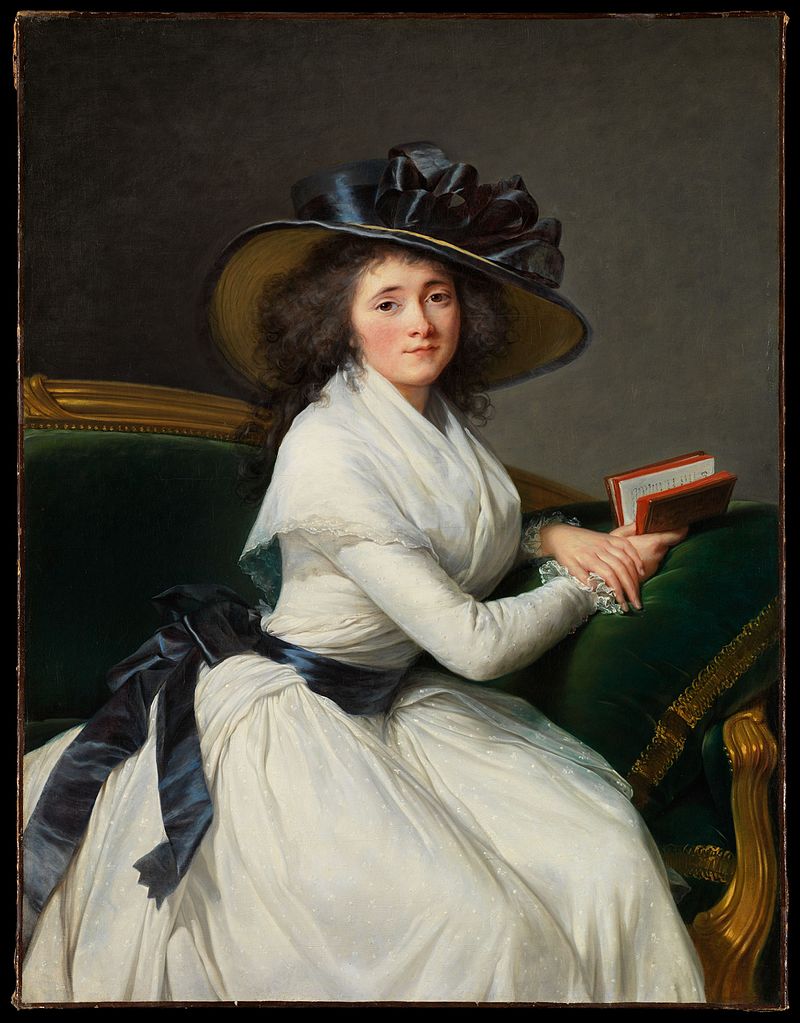
“Can you still enjoy a work of art when you discover that the creator who produced it has likely done some terrible things? That’s the question that Claire Dederer wrestles with in Monsters: A Fan’s Dilemma, one of the books I’m looking forward to reading over the holidays. Monsters has recently been turning up on several best-of-year lists,” says McCabe.
“Another book I’ll be spending time with is, coincidently, also called Monsters. British illustrator Barry Windsor-Smith took the comic book world by storm in the early 1970s with his stylish and dynamic artwork on Marvel’s Conan the Barbarian. He has had a complicated relationship with the industry since then, occasionally producing memorable work, but frequently keeping his distance (he is no fan of the shoddy treatment that creators often experienced in the business),” says McCabe. “Monsters is, among other things, a darker take on the Captain America origin story (the military uses advanced technology to transform a young army recruit into a super soldier). Windsor-Smith reportedly worked on Monsters for 35 years and it earned him three Eisner Awards (the U.S. comic book industry’s version of the Oscars).
“If I have time to dive into a third book, my pick would be Collision of Power: Trump, Bezos, and The Washington Post, by Martin Baron. Baron is a legendary figure in newspaper circles (he may end up being one of the last legendary figures associated with that besieged industry). He has been the executive editor of The Miami Herald, The Boston Globe and, most recently until his retirement in 2021, The Washington Post. The newspapers he led won many major prizes, including 17 Pulitzers (Liev Shreiber portrayed him in the Oscar-winning Spotlight),” says McCabe.
“Collision of Power offers a behind-the-scenes account of what life was like at the Post during a particularly tumultuous moment in its history. The paper was purchased by Amazon founder Jeff Bezos in 2013 and a few years later became a frequent target of Donald Trump who bristled at the paper’s coverage of his presidency.”
******
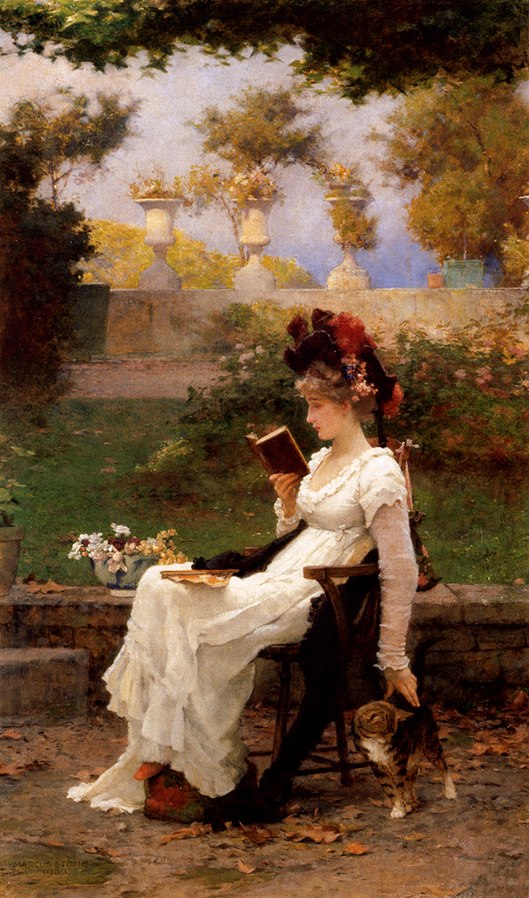
If there’s anyone who has an inside track on good reads, it would be Jane McAslan – Senior Library Clerk, Circulation, Humanities and Social Sciences Library.
“I’ve got a few racked up and ready, and a few interlibrary loans requested (not to mention possible presents … hints have been made),” writes McAslan.
“I’m looking forward to Jeanette Winterson’s ghost stories, Night Side of the River, that should be fun. And I have a copy of Janice Hallett’s Alperton Angels ready; I’ve read a couple of hers this year (The Appeal, The Twyford Code) – they’re very inventive mysteries: The Appeal is told entirely in texts, WhatsApp messages, and emails between a group of people involved in an amateur theatre group, which I thought could be irritating but was in fact riveting; and The Twyford Code similarly is in transcribed recordings. They invite the reader to solve the mystery with the available clues. Thoroughly enjoyable. I don’t know how the new one’s arranged but I’m sure it will be similar.
“Then there’s Jonathan Lethem’s new Brooklyn Crime Novel, an autofictional return to Brooklyn. I’ve never not enjoyed a book by him. And Moon of the Falling Leaves, by Waubgeshig Rice – ten years after the events of Moon of the Crusted Snow; I’m intrigued to find out how the group has managed post-apocalypse,” says McAslan.
“Of course there are the books that I hope arrive in time for the holidays: two by Francis Spufford, whom I’ve never read but of whom I’ve read many a good review. I’m especially intrigued by his latest, Cahokia Jazz, a film-noir thriller set in an alternative 1920s in the made-up mid-Western town of Cahokia,” she writes. “But I’ve also ordered a previous one of his, Golden Hill which The Guardian describes as ‘a picaresque tale of an ingenu’s travails in mid-18th century Manhattan.’ Love me a picaresque tale!
“And finally, The Defector, Chris Hadfield’s follow-up to The Apollo Murders, which promises to be as good as its predecessor. Plus, obviously any books I might get in the meantime,” says McAslan. “I’m getting anxious about the books moving out of the library – the sixth floor’s nearly gone, and the fifth, where the literature lives, is next – and trying to think of what I might want to read in the next few months – I’ll definitely miss being able to just nip upstairs and get a book whenever I want.”
******
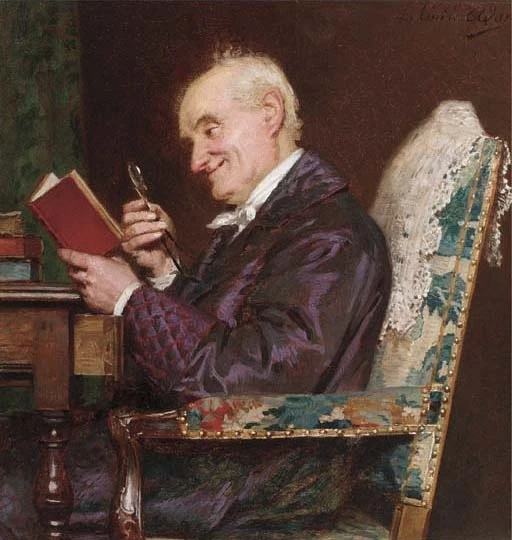
Sarah Delisle is another McGill Reads regular. “Hopefully I’m making it under the wire,” writes Delisle, Senior Advisor, Emergency Management & Preparedness, Campus Public Safety. “Since I haven’t had time to consider my holiday reading, I’m not sure that bodes well for actually finding time to read over the holidays, but hope springs eternal.
“I would love to finish the year by finishing Michael Christie’s Greenwood, which is the last of the Canada Reads 2023 contenders on my To-Read list. It is a multigenerational saga about trees and the intertwined fortunes of the aptly named Greenwood family. It opens in a near future where much of the world’s old-growth forests have died off and pulls you in from there,” says Delisle.
“Then, if the holiday sprites are generous, I hope to read Kukum by Michel Jean, which is based on the life of the author’s great-grandmother with the Innu of Pekuakami. I will also continue my armchair travels with Testé et approuvé 2, which is the second such collection pulled together by Marie-Julie Gagnon and highlights 100+ extraordinary experiences to enjoy across Quebec. You can’t help but start planning your next trip when reading this book!
******
Matt Corks has finally taken the McGill Reads plunge! “I’ve enjoyed this bi-annual list of suggested reads for some years and have come close to contributing a few times, but am happy to finally be doing so,” says Corks, Senior Web Developer/Analyst, Web Services Group, IT Communications
“I’ll list three books, which I can speak of to varying degrees – one I’ve just finished, one I’m in the middle of, and one I’d like to read next.
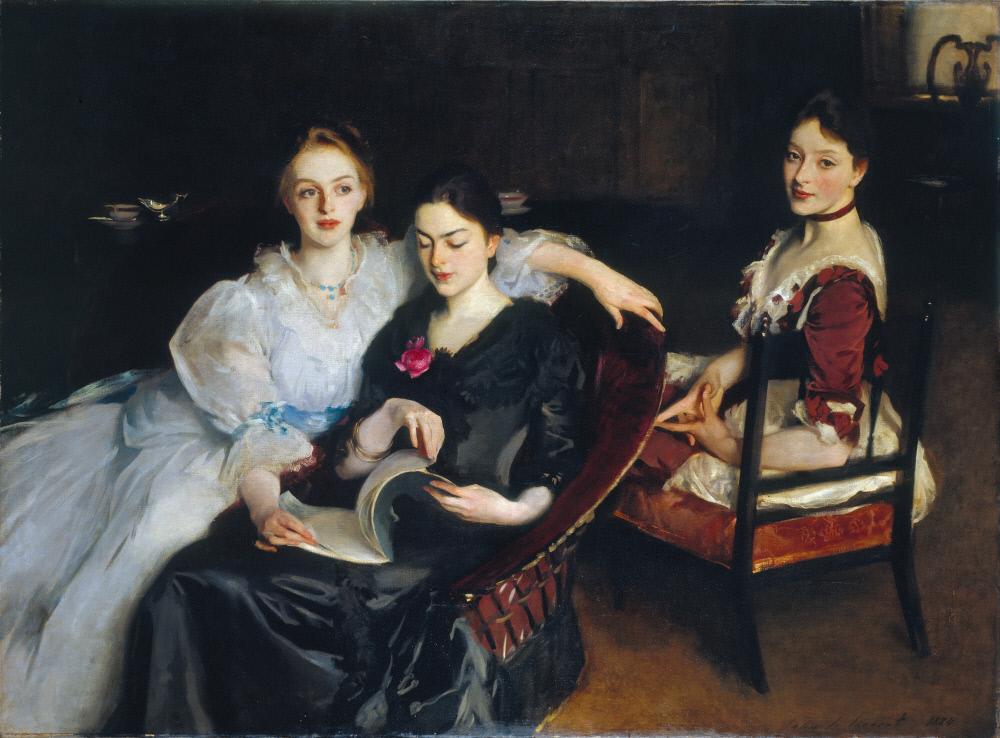
“Having greatly appreciated Naomi Alderman’s brilliant novel The Power (which I picked up after seeing it recommended by no less than her mentor, Margaret Atwood), I made a note to read her new book The Future as soon as it was released this fall, and if anything, I enjoyed it even more,” writes Corks. “It further lowered my opinion of artificial ‘intelligence’ hype, gave examples of how climate change, tech monopolies, and late-stage capitalism could be reformed in surprisingly little time, and was a witty adventure story to boot. What more could you ask for in a novel?
“I’m now reading Fayne, published by Ann-Marie MacDonald about a year ago, which instead of merely borrowing elements from classic gothic novels like some of her previous novels is a full-on period piece set in an aging manor on a lonely moor in the late 1800’s.The protagonist at one point dismisses the novel Jane Eyre as being too contrived and unrealistic, which is pretty funny given that I can see even bigger plot twists are headed my way,” says Corks. “I’m looking forward to reading the acknowledgements section when I get to the end to see how MacDonald undertook what was obviously a massive amount of period research.
“Next, I’d like to read Monkey Beach, by Eden Robinson. Her Son of a Trickster series of three novels was both a compelling snapshot of today’s west coast Indigenous teen delinquent life and a hilarious read, and more than enough to make me want to go back and spend more time in this author’s world, here in an earlier book set in the same time and place. Like the other two authors, anything else Robinson writes will certainly make it to my list of titles to be read, eventually,” writes Corks.
“May your holidays be full of time to read!”
******
Longtime McGill Reads contributor Chris Buddle has a well-deserved reputation as a voracious reader. “For me, one of the best parts of the holiday season is having a bit more time to read,” says Buddle, Associate Provost (Teaching & Academic Planning). “I have quite a list, some are books already piled up on my bedside table, others are on my wish list.
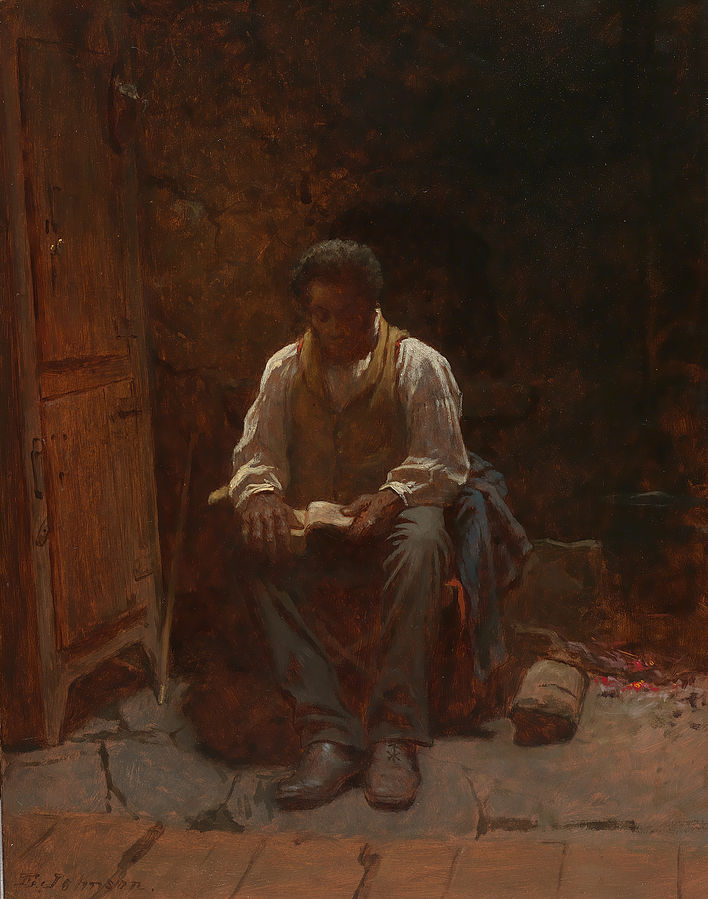
“For fiction, I can’t wait to dig into Demon Copperhead, by Barbara Kingsolver and Tom Lake, by Ann Patchett. While I’ve not read a lot of Kingsolver’s books, Ann Patchett’s State of Wonder is a stellar read. I have high expectations of both books, by two tremendous authors,” says Buddle.
“I’m hoping to read Cormac McCarthy’s novel Stella Maris this winter too. I read its companion novel, The Passenger, last year (I note that both of these books were on my 2022 McGill Reads list!) – I didn’t love The Passenger, but on balance I find his writing so compelling so I’m hoping not to be disappointed. These two books are his last as Cormac McCarthy died in June of 2023,” he writes.
“Last on my fiction list is Angelmaker, by Nick Harkaway. His work is extremely creative, and this one (published about a decade ago) is described as ‘absurdist comedy.’
“For non-fiction, I will re-read Rick Rubin’s The Creative Act: A Way of Being. It’s wonderful and I’ve already read it twice. Speaking of creativity, I want to get a copy of Ralph Steadman’s Extinct Boids – his art is incredible (many people know his artwork from Fear and Loathing in Las Vegas) and this book tells a story of extinct birds, a topic of importance for me,” says Buddle.
“I gave Darwin’s Love of Life (by Kay Harel) to my Dad last year and he’s passed it along to me so it’s now on my reading list, Being a biologist, I’m always interested to learn more about Darwin. I’m also intrigued by The Art Thief, by Michael Finkel. At first glance, this looks to be a book in which the truth is stranger than fiction. Bring it on.”
******
Lisa Knyszynska wins this year’s Cut to the Chase Award. “The Bone Code, by Kathy Reichs,” wrote Knyszynska, Senior Accounts Administrator, Faculty of Medicine and Health Sciences.
******
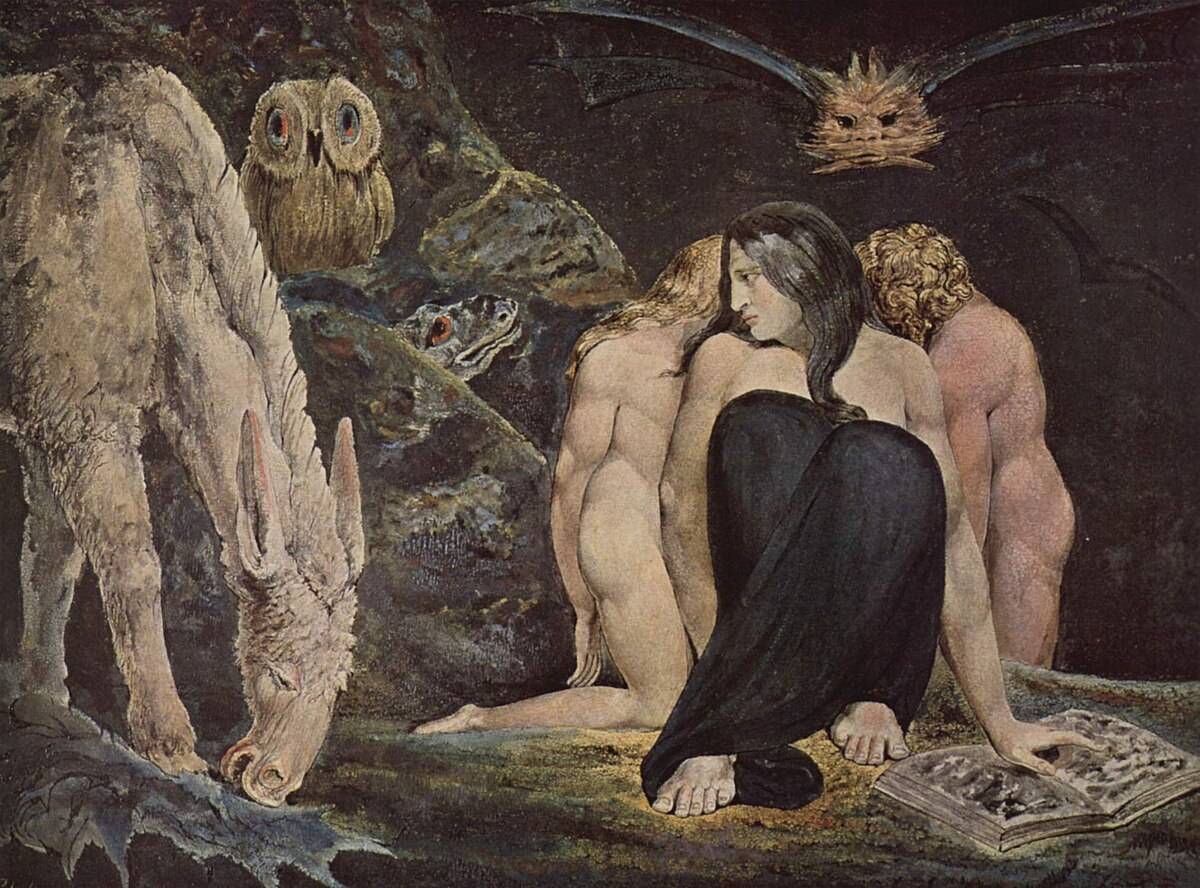
McGill Reads regular, Emily Love, recommends the following books:
Secret Life, the Jian Ghomeshi Investigation, by Kevin Donovan. “A creepy but compelling book that raises lots of questions into power and the workplace,” says Love, Manager, International Student Development & Communications.
Hello Beautiful, by Ann Napolitano. “I believe this book made Obama and Oprah’s booklists as well. Starts slow then gets highly addictive. I still think about these characters,”
Love is currently reading Leave the World Behind, by Rumaan Alam. “Soon to be on Netflix. I don’t normally read science fiction. Perhaps this is more dystopian. Very funny and dark and had me looking up words I’d never heard of before, like pudendum,” says Love. “Have a great holiday! I hope you read.”
******
“I usually like to read a hefty epic novel during the holidays so I can really plug in and get through it in a couple of weeks (instead of a month),” writes Emilie Langlois, Design Services, Facilities Management and Ancillary Services. “I haven’t found one for this year, but I read one during the summer that I would recommend: The Covenant of Water, by Abraham Verghese. Part multi-generational saga, part medical journal, the story satisfies your fascination with surgery and the medical world in general and bonds you intensely to its characters. His other book, Cutting for Stone, follows the same structure and is equally riveting.
“Another, lighter, recommendation is Rose’s Run, by Dawn Dumont, an Indigenous writer with lots of heart and wit,” says Langlois.
“On my to-read list is The Bullet that Missed (septuagenarians solving murders in a quaint English town. What’s not to love?), another light-hearted sleuth book by Richard Osman, and « La Version qui n’intéresse personne » by Emmanuelle Pierrot, which is said to be dark, intense, and engrossing. I may have to read Osman and Pierrot in parallel, so they counterbalance each other!
“Thanks for letting me contribute. Fun project, I can’t believe I’d never encountered the list before!”
******
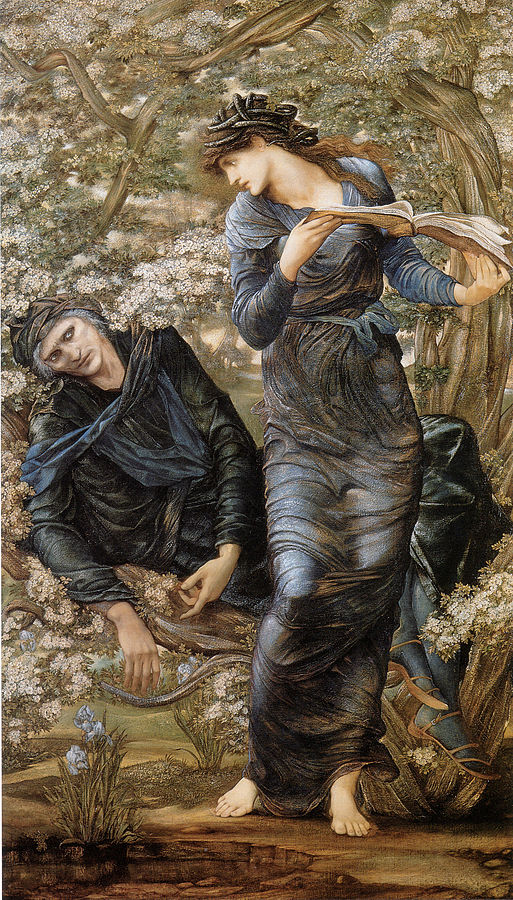
If McGill Reads was a baseball franchise, Bud Martin would be our All Star closer. Armed with a wicked fastball and well-versed in the art of deception and sleight of hand, Bud has been carrying the mail for us for years.
So, as the 2023 edition of McGill Reads hits the late innings, we’ve handed the ball to Bud one more time.
“My holiday reading is split into two camps: want-to and need-to,” says the lanky right hander.
“Want-to first: I’ve been biography hopscotching: Schulz and Peanuts, David Michaelis’ look at the life of the man behind Charlie Brown; Cosmic Scholar, John Szwed’s delightfully meandering take on the life of Harry Smith, the beatnik anthropologist/archivist/polymath behind the Anthology of American Folk Music and much more; and Genius, James Gleick’s bio of eccentric Los Alamos theoretical physicist Richard Feynman (kinda like Oppenheimer with bongos). Some shorter reads on deck, too: the new Dan Clowes graphic novel, Monica (his New Yorker guided tour of influences was total comic nerd catnip), and Better Next Year: An Anthology of Christmas Epiphanies, which strives to ‘salvage the spirit of the season’ from saccharine clichés.
“And I’ve sung the praises of Biblioasis’ series of Christmas ghost stories before, but I’ll do it again,” says Martin. “For the ninth year running, there’s a new crop of reprinted short Victorian (ish) spookiness, and the 24th, 25th, and 26th installments look perfect for a frosty December night: ‘The Captain of the Polestar,’ by Arthur Conan Doyle; ‘The House by the Poppy Field,’ by Marjorie Bowen; and ‘A Room in a Rectory,’ by Andrew Caldecott. (Speaking of ghosts, I’ll need to spend some time with the extensive liner notes for the new Spectra Ex Machina album of archival occult recordings, including not one but two Elvis seances!)
“As for what I NEED to read, it’s a shorter, more grounded list: Storage: Cabinets, Closets and Wall Systems, by Jane Randolph Cary and Built-ins by the venerable editors of Time-Life. I desperately need to build some shelves for all these darn books.”
